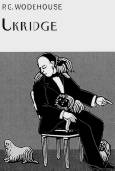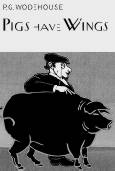It is enough to be funny
Stephen Fry
 DOCTOR Sir Pelham Grenville Wodehouse defies superlatives.
DOCTOR Sir Pelham Grenville Wodehouse defies superlatives.
Had his only contribution to literature been Lord Emsworth and Blandings
Castle, his place in history would have been assured. Had he written of
none but Mike and Psmith, he would be cherished today as the best and
brightest of our comic authors. If Jeeves and Wooster had been his solitary
theme, still he would be hailed as The Master. If he had given us only
Ukridge, or nothing but recollections of the Mulliner family, or a pure
diet of golfing stories, Wodehouse would nonetheless be considered
immortal.
That he gave us all those and more - so much more - is our good fortune and
a testament to the most industrious, prolific and beneficent author ever to
have sat down, scratched his head and banged out a sentence.
The only really controversial episode of Wodehouse's life, his broadcasts
to friends from Berlin while an internee of the Germans in France and
Belgium during the Second World War, is dug up from time to time by people
wanting to make mischief and the ignorant. It wouldn't be worth mentioning
if it hadn't been unearthed yet again quite recently, together with
completely unjustifable newspaper headlines in the British press linking
the name Wodehouse with words like Nazi, Fascist and Traitor.
But as George Orwell wrote in his celebrated 1945 essay In Defence of P.G.
Wodehouse: ". . . in the case of Wodehouse, if we drive him to retire to
the United States and renounce his British citizenship, we shall end by
being horribly ashamed of ourselves." The fact remains too that for decades
after they were made, Wodehouse's broadcasts were used by, among others,
the CIA, as models of how to pull the wool over a captor's eyes by the use
of irony. For Wodehouse's view on Fascists, one need only consult the
descriptions of Sir Roderick Spode in The Code of the Woosters to see how a
political innocent may still be capable of scorching satire.
 When Hugh Laurie and I had the extreme honour and terrifying responsibility
of being asked to play Bertie Wooster and Jeeves in a series of television
adaptations, we were aware of one huge problem facing us. Wodehouse's three
great achievements are Plot, Character and Language, and the greatest of
these by far is Language. Wodehouse's language lives and breathes in its
written, printed form. It oscillates privately between the page and the
reader. The moment it is read out or interpreted it is compromised. Our
only hope in making the televison series was that the stories and
characters might provide enough pleasure on their own to inspire the viewer
to pick up a book and encounter The Real Thing.
When Hugh Laurie and I had the extreme honour and terrifying responsibility
of being asked to play Bertie Wooster and Jeeves in a series of television
adaptations, we were aware of one huge problem facing us. Wodehouse's three
great achievements are Plot, Character and Language, and the greatest of
these by far is Language. Wodehouse's language lives and breathes in its
written, printed form. It oscillates privately between the page and the
reader. The moment it is read out or interpreted it is compromised. Our
only hope in making the televison series was that the stories and
characters might provide enough pleasure on their own to inspire the viewer
to pick up a book and encounter The Real Thing.
I think I should end on a personal note. I have written it before and I am
not ashamed to write it again. Without Wodehouse I am not sure that I would
be a tenth of what I am today - whatever that may be. In my teenage years
the writings of P.G. Wodehouse awoke me to the possibilities of language.
His rhythms, tropes, tricks and mannerisms are deep within me.
But more than that he taught me something about good nature. It is enough
to be benign, to be gentle, to be funny, to be kind. He mocked himself
sometimes because he knew that a great proportion of his readers came from
prisons and hospitals. At the risk of being sententious, isn't it true that
we are all of us, for a great part of our lives, sick or imprisoned, all of
us in need of this remarkable healing spirit, this balm for hurt minds?
|
